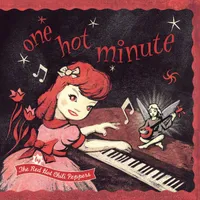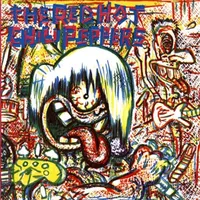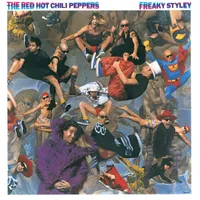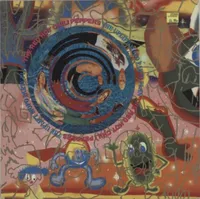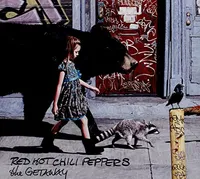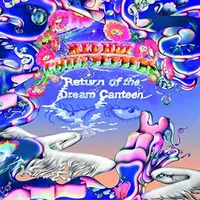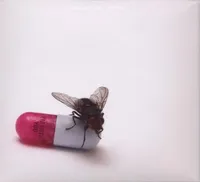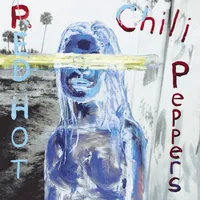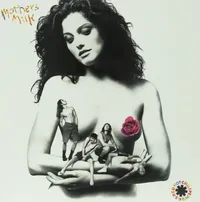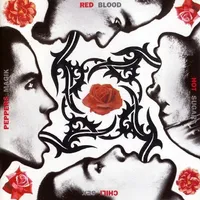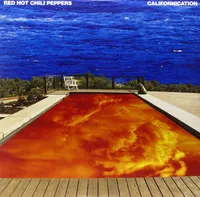Every Red Hot Chili Peppers album ranked from worst to best
Hollywood brats turned global superstars, the Red Hot Chili Peppers have endured tragedy and trauma to gracefully mature without losing the zest of youth
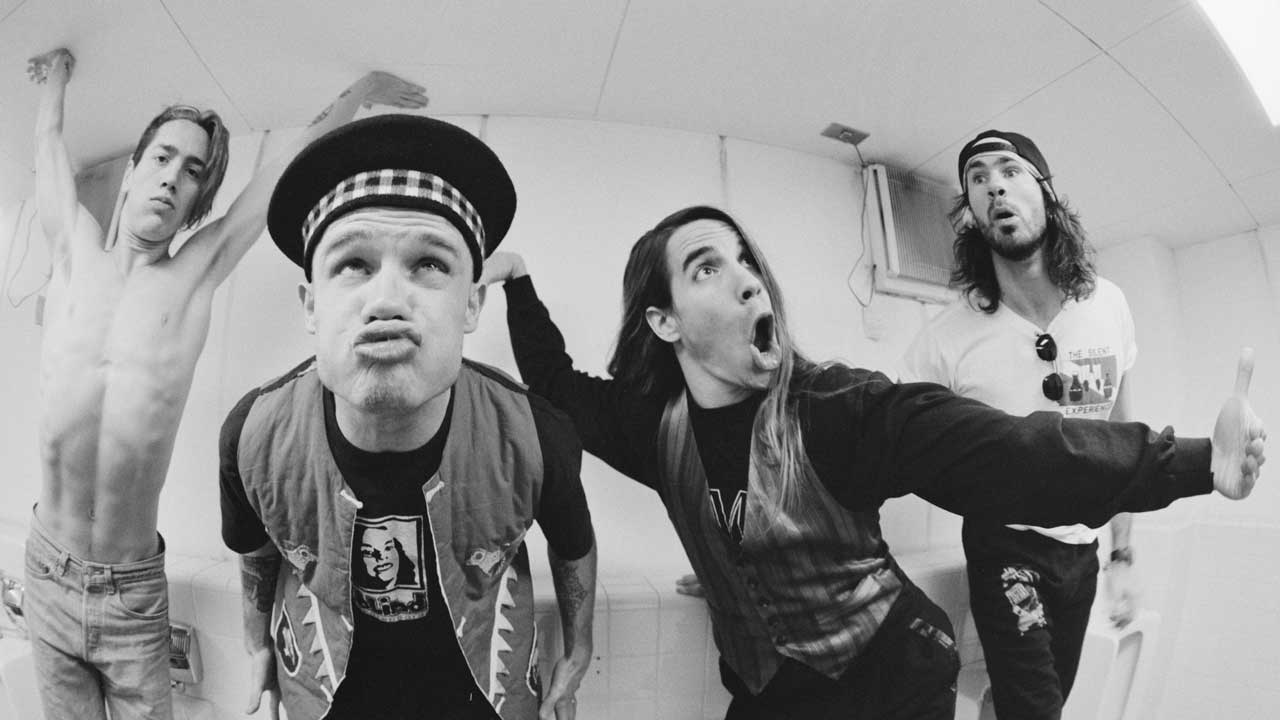
No one would have put money on the Red Hot Chilli Peppers making it to their 10th anniversary, let alone be fast approaching their 40th. These onetime Hollywood brat princes embodied the hedonism of 80s LA just as much as their glam metal counterparts raising hell a few miles down the Sunset Strip, leaving a trail of carnage and tragedy in their wake. But somewhere along the way, the Chilis cleaned up, grew up and somehow transformed into one of rock’s most enduringly successful band.
Formed in 1983 by ex-Fairfax High School buddies Anthony Kiedis and Michael ‘Flea’ Balzary, the Chilis were ‘alternative’ long before ‘alternative’ became a thing. Their crazed-puppy mash-up of funk, rock, punk, hip hop and anything else that wasn’t nailed down was fuelled by class-A narcotics and raging libidos. That lifestyle caught up with them in 1988, when founding guitarist Hillel Slovak died of a heroin overdose, curtailing their excesses (temporarily, at least) and bringing the curtain down on Act I of their career.
Act II would be bigger than anyone could ever imagine. Their fifth album, 1991’s Rick Rubin-produced Blood Sugar Sex Magik, was the point where the world finally caught up with what the Chili Peppers were doing. Its 10 million sales elevated the band to superstardom, but not everyone could handle it – guitarist John Frusciante, who had replaced Slovak as a 19-year-old Chili Peppers superfan, got entangled in the same things that had killed his predecessors.
Frusciante’s sudden departure in the middle of Japanese tour in 1992 precipitated his own descent into a personal hell, the end of which coincided with his return to the band for 1999’s unexpectedly mature Californication, replacing his own replacement, Jane’s Addiction guitarist Dave Navarro.
The second half of the Chili Peppers’ career has been no less eventful. Frusciante quit in 2009 for the second time, leaving his bandmates to find yet another guitarist, only to return a decade later, once again taking the place of the man who had filled on for him on two albums, former guitar tech Josh Klinghoffer.
While the personnel-related dramas have sometimes threaten to overshadow the music, the fact that they haven’t is testament to the quality of the Red Hot Chilli Peppers as musician and songwriters. Even now they’re sometimes misunderstood – a 35-year-old image of four 20-somethings naked apart from tube socks covering their genitals is forever fixed in the minds of a certain section of the public. But the fact that the Chili Peppers are still making music and, more importantly, still alive suggests they’re doing something right.

13. One Hot Minute (Warners, 1995)
On paper, the recruitment of former Jane’s Addiction Dave Navarro as replacement for the departed John Frusciante looked intriguing – a meeting of two LA alt-rock giants. In reality it was a non-event, with both parties warily circling each other to the point where any potential sparks of excitement were extinguished.
Warped pops and fizzes like a psychedelic firecracker, and My Friends is a decent enough re-run of the kind of laidback vibe they’d perfected with Under The Bridge. But the rest is a tired, unmemorable slog that suggested the Chili Peppers were a spent force. Within a few years, Navarro was out, Frusciante was back and they were bigger than ever.
12. The Red Hot Chili Peppers (EMI, 1984)
As the glam-metal era dawned, the youthful Chili Peppers were a Sunset Strip anomaly next to the likes of Ratt and Motley Crue, and their sheer otherness was only exaggerated by their debut album.
Producer Andy Gill of British post-punk linchpins Gang Of Four fluffed the job of capturing the band’s energy. But while the resultant sound – drily funky and strangely flat – is only intermittently recognisable as the Chilis, you can still see the foundations of what they would become. All the pieces were there – they just needed rearranging.
The Chilis’ second album found the pendulum swinging to the other extreme. The producer this time was George Clinton, the flamboyant powerhouse behind funk legends Parliament. Whatever magic dust Clinton sprinkled on the band worked: they never sounded so naturally funky before or since.
It also marked the return of guitarist Hillel Slovak, who had quit the band before the first album. Slovak’s effortlessly slippery guitar on standout tracks Jungle Man and Catholic School Girls is as important to the Chili Peppers’ sound as Flea’s bass acrobatics or Kiedis’s yap-rapping.
10. The Uplift Mofo Party Plan (EMI, 1987)
Despite Kiedis’s worsening smack habit, the band’s third album was their beefiest and most cohesive yet. Credit must partly go producer Michael Beinhorn, who helped focus the Chilis on being a rock band.
The Beastie Boys-esque Fight Like A Brave is the Chilis’ first great rap-rock anthem, and Behind The Sun tamps down the macho chest-beating in favour of blissful psychedelia, though the less said about the crass Special Secret Song Inside (aka Party On Your Pussy) the better. This was the true starting point for the Chili Peppers as we know them.
9. The Getaway (Warmer Bros, 2016)
Guitarist Josh Klinghoffer’s second and seemingly final album with the Chili Peppers, and their first in 25 years without producer-mentor Rick Rubin. His place is taken by studio wizard Brian ‘Danger Mouse’ Burton, who foregrounds detail and textures over big, sweeping brushstrokes of old on lilting single Dark Necessities and the uncharacteristically jagged The Ticonderoga (at least before it briefly blossoms into a flower-garden of psychedelia).
Elsewhere, The Longest Wave is the kind of liquid Californian ballad only they write. It’s no one’s favourite Red Hot Chiil Peppers record – not least among the Red Hot Chili Peppers themselves - but it’s a fitting farewell to the Klinghoffer era.
8. Red Hot Chili Peppers - Unlimited Love (Warner Bros, 2022)
John Frusciante had barely picked up a guitar in the decade before his surprise second reunion with his former bandmates in 2019, but you’d never guess it from Unlimited Love. Frusciante is all over the likes of the melancholic Black Summer and The Great Apes, his guitar blazing with a decades’ worth of pent-up expression on the latter. The Chilis’ oft-overlooked melodic punch is evident on the quick-stepping Bastards Of Light and The Heavy Wing spiralling updraft. The latter, essentially a duet between Frusciante and Kiedis, shows just how integral his voice is to their sound.
At 17 tracks, it’s half the length of Stadium Arcadium, but it lacks that album’s anything-goes scope and shapeshifting approach. But there’s still more invention and energy here than any band approaching their 40th year has a right to possess.
7. Return Of The Dream Canteen (2022)
The Californians’ second album of 2022 is testament to the creative torrent unleashed by the return of Frusciante. Where immediate predecessor Unlimited Love was arena rock filtered through a kaleidoscopic prism, this follow-up was both more reflective and more experimental, embodied respectively by luminous Eddie Van Halen tribute Eddie and the gorgeous pared-down electronica of La La La La La La La La.
Yet no far how they drifted, Return Of The Dream Canteen was always anchored in the effortless melodic panache that defines latterday Chili Peppers. Quality-wise, there’s little to separate Unlimited Love and …Dream Canteen, though the latter’s comparative restraint suggests it will only grow in stature with time.
6. I’m With You (Warners, 2011)
John Frusciante’s second, less traumatic departure, in 2009, provided an opportunity for the Chili Peppers to hit the reset button after Stadium Arcadium’s epic blowout. The result was the most experimental, eclectic album of their career.
With former touring guitarist Josh Klinghoffer successfully channelling Frusciante’s liquid genius, you can barely hear the joins on the likes of Monarchy Of Roses and The Adventures Of Raindance Maggie, while the plaintive Brendan’s Death Song pays heartfelt tribute to former mentor Brendan Mullen in a way that would have been unthinkable 20 years earlier.
If Californication was the sound of the Chili Peppers coming back swinging, then this follow-up found them breathing easily once more. The cock-waving machismo of old is largely put on the backburner in favour of a more mellow, clear-eyed approach. But what the album lacked in punch it more than made up for in texture, with the rolling title track, Zephyr and the lilting ska of On Mercury broadening their palette even further.
By The Way proved that Californication was no career-saving fluke, and showed the Chilis had finally reached adulthood. And it suited them.
On their first three albums, the Chili Peppers staked out their territory as LA’s foremost party animals. This, their fourth, marked the point where they started to grow up – and step up.
Written and recorded in the shadow of Hillel Slovak’s death, it’s the sound of a band dealing with grief the only way they know how: by having a party. But where the restless funk and prepaid energy remain on Good Time Boys and their cover of Stevie Wonder’s Higher Ground, the blissful pop-rock fizz of Knock Me Down barely disguises Kiedis’s anguish at the death of his friend.
3. Blood Sugar Sex Magik (Warners, 1991)
Enter producer/guru/star-maker Rick Rubin, whose work on the Chilis’ fifth album helped turn them into the megastars they’d always been in their heads. Recorded in a supposedly haunted mansion once owned by Harry Houdini, Blood Sugar Sex Magik exists where the spiritual meets the carnal.
Give It Away, Suck My Kiss and Sir Psycho Sexy take their livewire funk rock to its logical conclusion, but it’s Kiedis’s tender junkie’s mea culpa Under The Bridge that stands as the album’s outstanding moment.
2. Stadium Arcadium (Warners, 2006)
The Chilis’ first double album, and their most under-appreciated record. Written off by many at the time as a bloated self-indulgence, in truth it’s anything but.
Stadium-sized opener Dani California has a chorus as big as the LA Basin, and there’s a gem at every turn, whether it’s the lilting Snow or the Krautrock-inspired Animal Bar. The whole thing is a showcase for Frusciante, whose protean guitar heroics amount to a passive takeover of the band. The only true stinker amid its 28 tracks is the lead-footed funk of Hump De Bump.
1. Californication (Warners, 1999)
The Chilis have always been the LA-est of LA bands, and Californication is their most LA album – and all the more brilliant for it. With the band revitalised by the return of John Frusciante, this is as vibrant, sprawling and complex as the city that spawned them.
They don’t so much ditch the funk rock of the past as hone it to something mature and intelligent. Around The World and Parallel Universe ramp up the energy, but it’s the slower songs – Scar Tissue, Otherside and the title track – that show a more thoughtful, measured side that would point the way to the Chili Peppers’ future.
Sign up below to get the latest from Classic Rock, plus exclusive special offers, direct to your inbox!
Dave Everley has been writing about and occasionally humming along to music since the early 90s. During that time, he has been Deputy Editor on Kerrang! and Classic Rock, Associate Editor on Q magazine and staff writer/tea boy on Raw, not necessarily in that order. He has written for Metal Hammer, Louder, Prog, the Observer, Select, Mojo, the Evening Standard and the totally legendary Ultrakill. He is still waiting for Billy Gibbons to send him a bottle of hot sauce he was promised several years ago.
